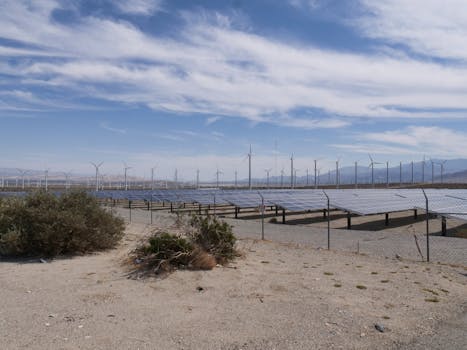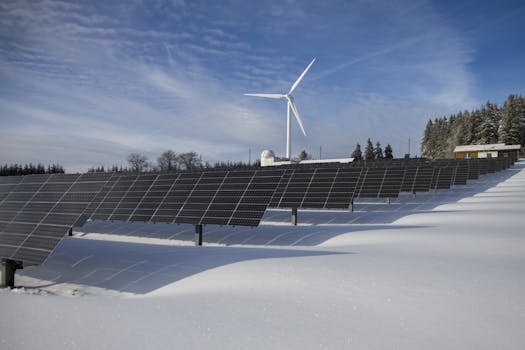
Introduction

Breakthroughs in renewable energy technology are transforming the way we generate and consume energy. As the world grapples with climate change and the urgent need for sustainability, innovative solutions in renewable energy are more critical than ever. This article focuses on recent advancements in renewable energy technology and their implications for a sustainable future.
Solar Energy Innovations

Solar energy has seen remarkable advancements in the past few years. From the development of more efficient photovoltaic cells to the integration of solar technology in building materials, the solar sector is evolving rapidly. New materials such as perovskite solar cells promise higher efficiency and lower production costs, making solar energy more accessible.
Moreover, solar energy storage solutions, such as advanced battery technologies, are addressing the intermittency issues associated with solar power. These innovations allow for energy to be stored and used when the sun isn’t shining, enhancing grid reliability and energy independence.
Wind Energy Developments

Wind energy is another area experiencing significant breakthroughs. The design and engineering of wind turbines have advanced, leading to larger and more efficient models that can harness wind energy even at lower speeds. Offshore wind farms are becoming a popular solution, leveraging powerful coastal winds to generate substantial energy.
Additionally, innovations in turbine materials and smart technology are improving the efficiency and durability of wind energy systems. These advancements not only enhance energy output but also reduce maintenance costs and environmental impacts.
Hydrogen as a Renewable Energy Carrier

Hydrogen has emerged as a promising renewable energy carrier. With the ability to store and transport energy, hydrogen can play a vital role in decarbonizing various sectors, including transportation and industry. Electrolysis technology, which uses renewable electricity to produce hydrogen from water, is being optimized to make green hydrogen more economically viable.
Governments and private sectors are investing in hydrogen infrastructure, aiming to create a hydrogen economy that supports clean energy systems and reduces reliance on fossil fuels.
Smart Grids and Energy Efficiency

The integration of smart grid technology is revolutionizing energy management. Smart grids utilize digital communication tools to monitor and manage energy use more effectively, promoting energy efficiency and sustainability. Through real-time data analysis, consumers can optimize their energy consumption, leading to reduced waste and lower utility bills.
Additionally, smart grids facilitate the integration of renewable energy sources, allowing for a more resilient and sustainable energy infrastructure.
Conclusion

Breakthroughs in renewable energy technology are paving the way for a sustainable future. As innovations continue to emerge, they hold the potential to reduce our carbon footprint and transition to a cleaner energy landscape. By embracing these advancements, we can work towards a more sustainable and environmentally friendly world.






